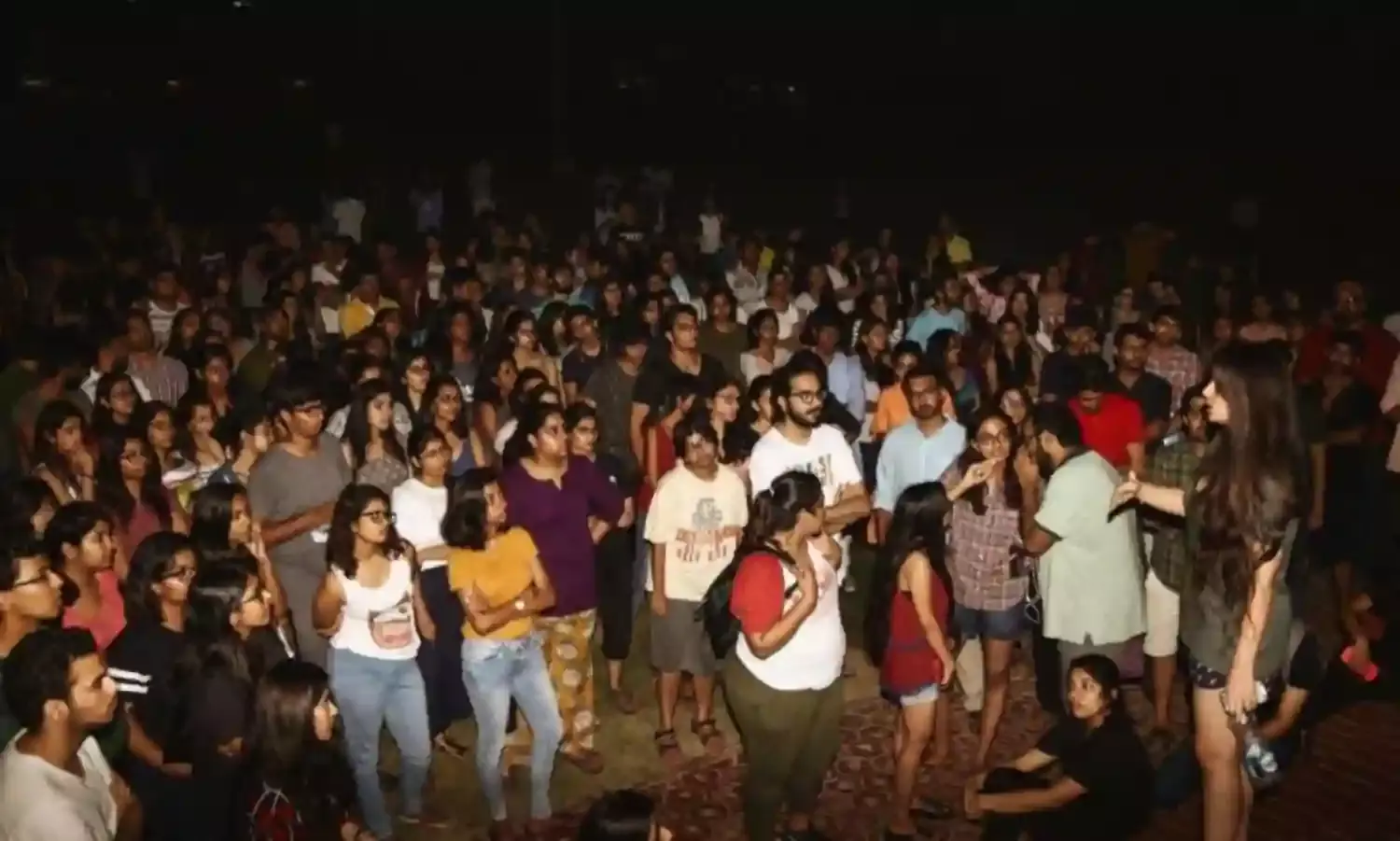OP Jindal Rape Case: A Student's Perspective On Morality And Justice
Photo of students protesting against the order. Arvaan Kumar/ScoopWhoop.

NEW DELHI: Victim blaming is not something we are completely unfamiliar with and the question “oh but what was she wearing” is not an unheard one. Nevertheless, a recent order by the Punjab and Haryana High Court suspending the jail sentences of the three O.P Jindal Global University students accused of repeatedly raping a fellow student had caused an uproar in the University’s campus. Being a part of the student community, I thought it was imperative to examine this order and understand the nexus between the Indian idea of morality and justice, to which the judiciary repeatedly appeals to and sometimes bases its decisions on.
The order does not only assassinate the victim’s character but assumes a parens patriae character and almost changes the nature of the accused persons to that of being a victim. It says that if these young minds are confined to the jail for an inordinately long period, it will deprive them of their education and an opportunity to redeem themselves.
The court even grants the accused person leave to go abroad in case they want to pursue higher studies. Why has the Court undertaken such lenient attitude when it is dealing with such heinous crimes? It is almost as if after examining the case, the character of the victim has served as a mitigating factor in the punishment which must be given to the perpetrators of the crime. The court cites the lack of gut-wrenching violence which usually accompanies or precedes such an act of rape.
The students of O.P. Jindal Global university drafted a petition publicly and unequivocally condemning the decision of the High Court. The Student body and the administration both were in support of the survivor but were unsure about staging a public protest and making statements at public forums as they were met with a peculiar dilemma. By attacking the judge or criticising the order via a public statement both the publisher and the survivor were at risk since the matter was that which was still going on in a Court of Law and further it was a High Court order and not a judgement, which meant that it ran a greater risk of being subjected to an order of “Contempt of Court”.
Therefore, any public statement challenging or even questioning the court’s order of suspension could be construed as contempt of court. This was the basic crux of the dilemma as the students and professors belonged to the legal field and were at the risk of jeopardising their future and careers.
With such limited scope the students were restricted to voice their anger and dissent only by the #StopVictimBlaming and few carefully worded articles that were cross and double checked by professors for any objectionable statements.
This judgement, unfortunately is one of many that pin down the blame on women Statements appeal to a transient idea of Indian culture. Instead of only basing its judgments on the statutory provisions, Indian courts are increasingly bringing a moral perspective in their rulings.
Even in the cases of rape whenever the prosecutor's honesty has been questioned, the Supreme Court repeats the statement that in Indian culture, a woman–victim of sexual aggression would rather suffer silently than implicate somebody falsely. Any statement of rape is a highly humiliating experience for a woman.
Instead of appealing to the nature of the offence committed, weight is given to a ‘ghost culture’ which cannot be pinned down. A woman must not be made a goddess, because she is only a mere human possessing faults just like the other.
In the Punjab and Haryana High Court order the Court refers to the immature and nefarious world of youngsters and reprimands both the victim and the accused of dragging themselves and their families into an abysmal situation. This statement dilutes the seriousness of the crime; it is almost as if a boy has failed his exams and also did not let his fellow student do well because he threw water on her. The court must realise that it is not a principal in charge of ensuring discipline in a school, but a place for hanging out justice according to the Constitution and statutes of the nation.
This is no tragedy as said in the order, but an intentional criminal act which must be punished according to the law of the land without reference to irrelevant facts. The same youth who have been accused of being voyeuristic and promiscuous are the ones fighting for justice for the victim.
(The writer is a student at OP Jindal Global University)



